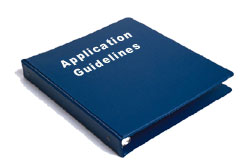 This page provides information on the Ace polyethylene tank materials including chemical service temperatures, ultraviolet light exposure, environmental stress crack resistance, specific gravity, material color, FDA compliance, and NSF compliance.
This page provides information on the Ace polyethylene tank materials including chemical service temperatures, ultraviolet light exposure, environmental stress crack resistance, specific gravity, material color, FDA compliance, and NSF compliance.
Chemical Service Temperatures
Continued or prolonged service with certain chemicals at elevated temperatures may reduce the life of a polyethylene tank. The effects of the temperature on the polyethylene will depend on the chemical chemistry, chemical specific gravity, size and model of tank the chemical is to be stored in, and the tank wall thickness. Depending upon the chemicals to be stored, Ace Roto-Mold tanks will handle sustained temperatures of up to 120° F (49° C) and intermittent temperatures of up to 140° F (60° C). Consult the chemical manufacturer for recommendations regarding storage in polyethylene tanks and service temperature limits. Please note that higher service temperatures will lower the specific gravity rating of the tank.
Ultraviolet Light Exposure
Ace Roto-Mold tanks are molded from polyethylene compounded with the latest technology in ultraviolet (UV) light stabilizers. These UV stabilizers will reduce the harmful effects of ultraviolet light exposure and are intended to extend the life of a tank over similar materials that are not compounded with stabilizers. Our UV rating is “15” on most product materials which generally means that after 15000 hours of exposure to the sun, there will be 50% of UV protection remaining. Consult the factory for the specific UV rating of the product you are using.
Environmental Stress Crack Resistance (ESCR Rating)
ESCR is a method utilized to evaluate or test processed polyethylene for stress crack resistance when exposed to a chemical for a given amount of time. Most polyethylene resins are rated according to an ESCR value that is specified in the material specifications data supplied by the resin supplier. Certain chemicals, although having no direct chemical effect on polyethylene, may accelerate cracking under mechanical stresses. Elevated temperatures may also effect polyethylene cracking. Although all processed polyethylene resins are subject to stress cracking, some are more resistant to it than others. Please reference the material data specifications for ESCR ratings for the tank model selected. To reduce the effect of ESCR proper care should be taken to reduce stress at fittings, bands, tie down lugs, etc.
Specific Gravity
Specific Gravity is the ratio of the chemical weight per gallon divided by the weight of water per gallon (8.33 lb. per gallon). As an example, if a chemical weighs 10 lb. per gallon, the specific gravity of the chemical is 10.0/8.33 = 1.2. (Metric: kilogram/cubic meter or gram/liter) The Ace Roto-Mold standard tank has 1.7 specific gravity.
Material Color
The standard color for most Ace Roto-Mold tanks is natural (translucent white). Yellow is the standard color for crop care tanks, septic tanks, and liquid feeders. Spot sprayer and vertical tanks may be inventoried in both natural and yellow. Standard stock tanks are spruce green. All tanks may be ordered in non-standard colors such as yellow, black, or green as an option.
FDA Compliance
Ace Roto-Mold tanks are manufactured utilizing FDA compliant resins. Natural, black, and green colored tanks are in full compliance with current FDA standards for polyethylene tanks. However, certain colors (i.e. yellow) when blended into the resin, may effect this compliance. Consult the factory regarding other colors and FDA compliance. Please specify on your tank order if FDA compliance is required and we will assist in your selection.
NSF Compliance
National Sanitary Foundation (NSF) compliance considers a number of factors for approval. Among these are material and final configuration of the product including fittings and accessories that are exposed to the chemical. For this reason, please consult the factory regarding NSF approval.